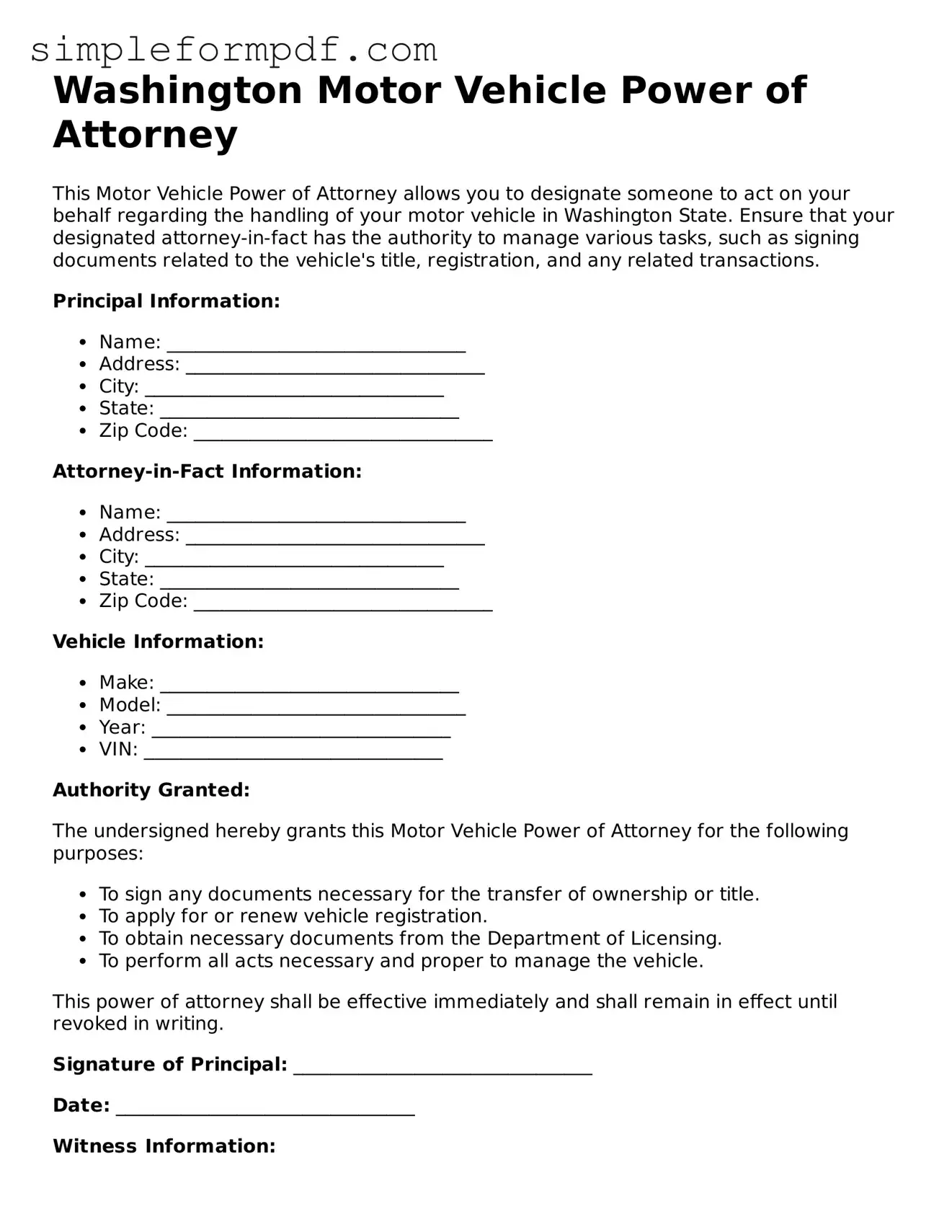Free Motor Vehicle Power of Attorney Form for the State of Washington
The Washington Motor Vehicle Power of Attorney form allows you to designate someone else to handle your motor vehicle transactions on your behalf. This can include tasks like registering your vehicle, transferring ownership, or obtaining title documents. If you need assistance with these matters, consider filling out the form by clicking the button below.
Launch Editor

Free Motor Vehicle Power of Attorney Form for the State of Washington
Launch Editor
Need instant form completion?
Finish Motor Vehicle Power of Attorney online in just a few minutes.
Launch Editor
or
Download PDF
